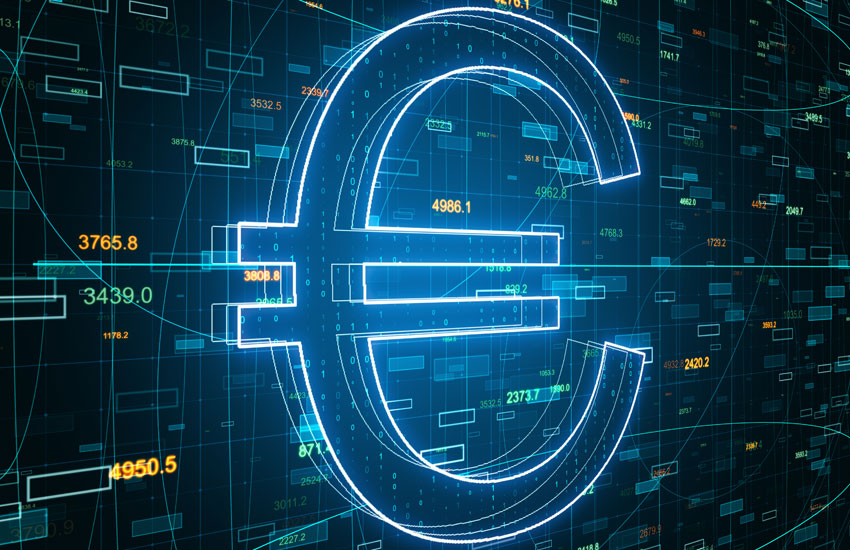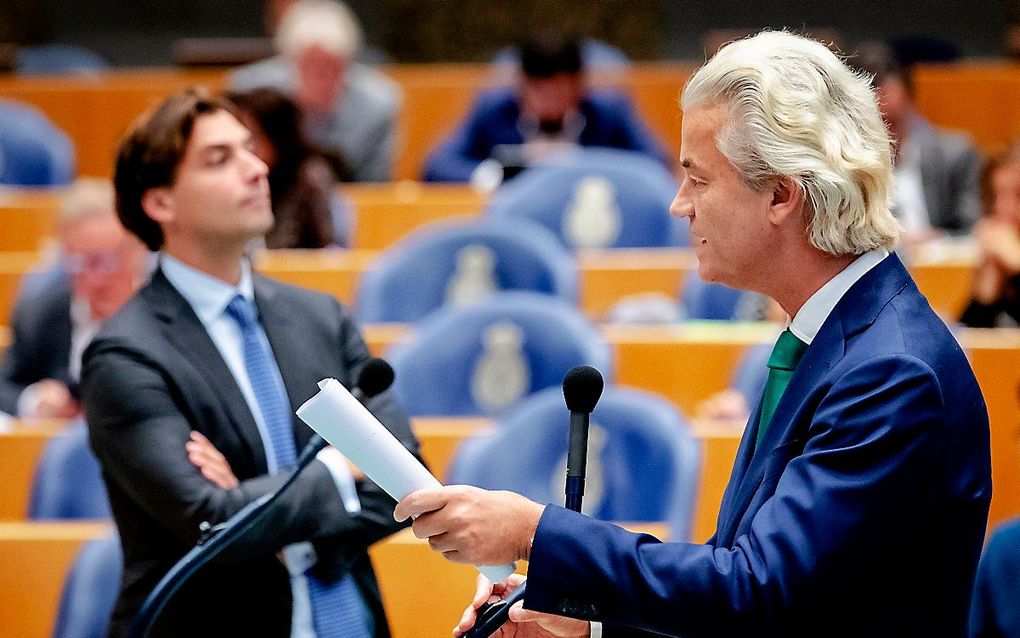“Blink with two eyes, and pay the price”

Imagine this: you’re driving your car to France for a holiday and you stop for gas. Remarkably, your card declines while there’s enough money in your bank account. The issue is that you’ve reached the monthly limit on gas restricted by the European Central Bank (ECB), who is now blocking your payment. Mahir Alkaya (Member of the Dutch House of Representatives on behalf of the Socialist Party) sketched this dystopian prospect in a recent article in the Dutch newspaper De Telegraaf. “The European Union is already discussing a personal CO2 budget. Soon we’ll have to pick between heating our house, or filling our car’s gas tank,” he says. Why has this development been swept under the carpet? How is the digital euro not part of a larger public debate?
The ‘What’ and ‘Why’?
Of course, the European Central Bank (ECB) does not include regulating the content of our payments in their description of the Digi-Euro’s benefits. Let’s first start with their motives for the implementation of a digital euro. The ECB’s first report on the Digi-Euro published in January 2020, introduced the concept, potential effects, and designs. The digital euro means to replace cash, the sort of money the central bank has a claim on apart from a bank balance, which is a claim on a commercial bank. Since cash flow is declining, the ECB’s influence on Europe’s monetary system has been receding. Therefore, the prime reason behind this new initiative is combating the impact of BigTech on Europe’s financial system. You know, how ‘Mark Zuckerberg’ is responsible for all your unnecessary purchases (ECB’s definition of ‘BigTech’ in footnote)! In a later report in 2021, the ECB concludes that the new positions of BigTech between institutions and consumers are changing the landscape and surveillance of the financial system. If the EU does not intervene, this might lead to certain risks which they describe in the report.


/wiki/File:Google_Glass_Model.jpg).
So the ECB wants to retain its grip on Europe’s financial system by taking it away from Google, that doesn’t seem like a bad idea, right? On top of that, with the implementation of a digital euro they promise more efficiency, lower (transaction) costs, financial inclusion and privacy as a top priority to help maintain trust in payments. Amazing! But isn’t that much like other cryptocurrencies such as Bitcoin? No silly! “Bitcoin is not a means of payment, it’s a means of account. You can buy a Tesla with Bitcoin, but it’s impossible to visit a restaurant and ask to pay for your coffee with Bitcoin,” exclaims ECB Executive Board Member Fabio Pancetta. He stresses that because the ECB safeguards the digital euro’s value, it will provide more safety, unlike Bitcoin which is sensitive to market changes.
“A digital euro is just like cash, the only difference is that it’s digital. You bring it along more easily in your pocket. In the future we’ll even pay with the digital euro in our glasses, blinking one eye you complete your payment. Be careful, don’t blink with two eyes, or you’ll pay twice.”
– Fabio Pancetta, ECB Executive Board Member (2021)
Meanwhile, the ECB has been continuing to pursue its goals. If all research is finished, its implementation is planned after the third quarter of 2023. What do we think of the digital euro as an EU Member State? Does our legislative even have a say in this?
Different Dutch opinions
In a letter, Minister of Finance Sigrid Kaag writes to the House of Representatives that “…the decision to introduce the digital euro must have a solid democratic basis”. With this, she refers to Eurogroup’s statement published on 25 February 2022 in which it makes explicit its role in providing political direction for the development of a digital euro. She recognizes the Digi-Euro’s advantages, yet she also believes it should co-exist with cash rather than completely replace it. On November 23rd the Committee of Finance will have another debate on the digital euro and discuss several reports.


Dutch politician and MP (SP) Mahir Alkaya during a debate in Amsterdam (2018). Image: Het Nieuwe Nederlandse Ontwikkelingsbeleid – Tussen eigenbelang en altruïsme.
Aukje de Vries (2019). Image: Tweede Kamer der Staten-Generaal.
As previously mentioned, not everyone is too excited about this new digital currency. Two Parliament members, Mahir Alkaya (SP) and Aukje de Vries (VVD) expressed their concerns in a report on the digital central bank euro. It’s matters of privacy that make them question the Digi-euro’s real purpose. In De Telegraaf, Alkaya warns us: “With this Digi-euro we enable the government to monitor our expenditure. We even give them the ability to take decisive power over our payments.” In the same article, he mentions – what he thinks are, and I agree – alarming statements of Rabobank economist Barbara Baarsma. She pleads for a personal CO2 budget that gives lower-class citizens the possibility to ‘sell’ their emission rights to the upper class. A win-win situation: the rich are allowed to pollute more and take extra trips to Ibiza, while the poor can stay at home during the summer but at least afford their monthly rent! These may be radical assumptions, but not entirely unfeasible according to Alkaya who has been observing Brussel and its development of the digital euro for a while now.
Good timing?
What will the digital euro imply to our political debate? Will this digital euro polarize us further in the debate on EU interference and sovereignty? Most definitely. However, why hasn’t it been a hot topic? Probably, the abundance of today’s crisis (cut them some slack, please) is enough to deal with already for our politicians. Notwithstanding, the ECB’s executive board pursues an active campaign for the digital euro.

Is it suggestive to question the ECB’s practical timing? The execution of the Netherlands’ highway speed limitations looks quite similar to this case. Though before it had taken months of discussion, during the peak of the COVID crisis the implementation of the limitations suddenly happened very rapidly. I think the continuation of this initiative, regardless of EU countries expressing discontent, is a pressing concern and threatens our state sovereignty. Let’s keep our eyes open for further developments because if we blink with two eyes, we’ll pay the price.
Reference
- “We define BigTech as the organization of large technology companies that use a digital platform simultaneously in many markets to operate. Specifically, it concerns Microsoft, Alphabet (Google), Amazon, Facebook, Apple, Alibaba, and Tencent (known as WeChat Pay). On the side of financial institutions, we focus on banks and insurers, in light of the DNB’s responsibilities and the potential impact.” (from: https://www.dnb.nl/media/eb5oxjke/veranderend-landschap-veranderend-toezicht.pdf).


Interesting take. Digital wallet seems to be such a thing in the Netherlands, a country that has over 95% transactions done digitally. I think the big difference, for sure, is that which institution is going to monitor expenditure (transaction / payment systems vs government) and why either of the two is (slightly) a better choice.
There is a clear connection with my article on EU nation-building with technology as well!